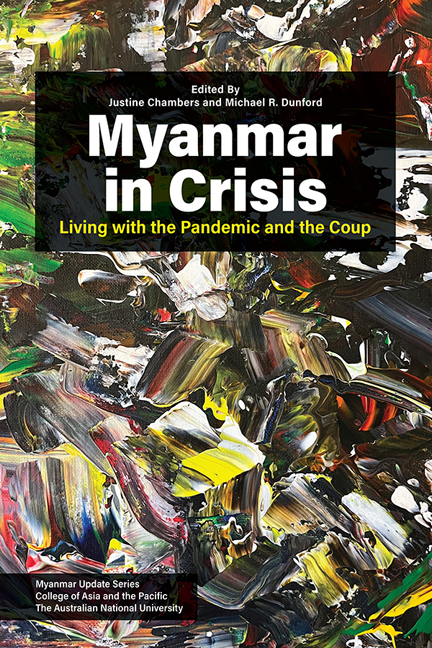12 - The Nature, Scope and Limits of International Responses to Myanmar’s Coup
Published online by Cambridge University Press: 01 March 2024
Summary
The 1 February 2021 coup in Myanmar prompted a diverse range of responses from foreign governments and intergovernmental organisations, revealing considerable misunderstanding within Myanmar on the scope of feasible international responses. This chapter describes these responses and discusses the challenges in navigating tensions between contact and legitimation. It discusses the utility of condemnations, calls for accountability, the release of detainees and recognition of the National Unity Government, and the handling of competing claims to represent Myanmar in international organisations. In the context of calls on the international community to “save Myanmar”, this chapter also considers whether the United Nations Responsibility to Protect concept could be invoked and discusses attempts by the Association of Southeast Asian Nations (ASEAN) to encourage dialogue between the parties.
I argue that while there is a performative dimension to the post-coup diplomatic response, it is also important for the international community to articulate its understanding of what constitutes acceptable conduct. Since the coup there has been a growing discourse and anxiety amongst people from Myanmar that, with the passage of time, nations, international organisations and businesses will increasingly become engaged with the military council. This anxiety is reflected in condemnation of contact, criticism of ASEAN efforts to find a pathway out of the political crisis and the calling out of all contact as “legitimising” the regime (Forum Asia 2021; Oo and Liu 2021). This tactic attempts to deny the military council any form of legitimacy. This chapter argues that some contact is necessary and useful and should not be stigmatised. To move on from the current situation to a restoration of democracy requires more than hope that the military council, on the basis of international opprobrium and a denial of international recognition, will eventually and voluntarily admit defeat and seek a return to parliamentary democracy.
The analysis in this chapter is based on observations of the first 18 months following the coup. Responses by advocacy groups — such as fundraising, lobbying for referral to the International Criminal Court, and other activities — and responses by the international donor and business communities, while important, are beyond the scope of this chapter.
- Type
- Chapter
- Information
- Myanmar in CrisisLiving with the Pandemic and the Coup, pp. 289 - 320Publisher: ISEAS–Yusof Ishak InstitutePrint publication year: 2023

